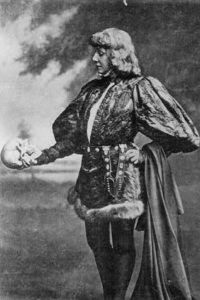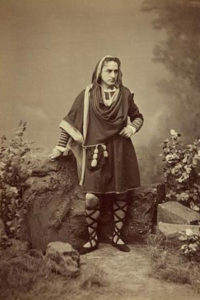Why I love what I do:
When putting my 4yr old to bed he informed me that we would be playing “a guessing game.” Normally this is a superhero guessing game, which consists of him saying things like “I’m thinking of a good guy who wears blue and red with an S on his chest,” and I have to guess Superman. Anyway, tonight he says, “A Shakespeare guessing game.”
“Oh, honey, we can’t play that,” I tell him. “You don’t know enough Shakespeare characters. I can tell you a Shakespeare story, though.” I’m thinking I’ll tell him a quick version of Midsummer or something equally 4yr-old-going-to-bed-safe.
So I tuck him into bed, curl up next to him, and ask what story he wants. He tells me, “A story with Hamlet, and Shakespeare…”
“…wait, you want Shakespeare *in* the story?”
“Yes. And… what else characters did Shakespeare write?”
“Well,” I say, realizing now that I’m going to have to improvise, “There was Oberon King of the Fairies, and Puck his faithful assistant.”
“Ok,” he decides, “A story with Hamlet, Shakespeare, Oberon and Puck.”
Oh, wonderful.
“And in the story, Hamlet has to say ‘To be or not to be.’ Twice.”
Great. So, we begin…
“Once upon a time there lived a prince named Hamlet. Hamlet was very sad, moping around the castle all day, because this new king – King Claudius – had taken over the thrown. Hamlet’s dad used to be king, but King Claudius threw him in the dungeon and made himself king. Hamlet was not very happy about this, but you just don’t walk up to a king and say Hey dude, that’s not cool – because if you do that, then he throws you in the dungeon too.
So, Hamlet is out walking the castle grounds trying to decide what do when he bumps into William Shakespeare. “Who art thou?” Hamlet asks.
“I am Shakespeare,” Shakespeare said. “I wrote this story.”
“Well then if thou didst write mine story,” said Hamlet, “Tell me how to get rid of King Claudius and put my dad back on the throne!”
Pulling a pen and paper from his pocket, Shakespeare began to write.
*Poof*
Out of nowhere appeared Oberon, King of the Fairies, and his faithful servant Puck.
“TO BE OR NOT TO BE!” exclaimed Hamlet. “WHO ART THOU?”
“I am Oberon, King of the Fairies,” said Oberon, King of the Fairies. “And this is my faithful assistant, Puck.”
“Dost thou know how to rid my kingdom of evil King Claudius?”
Oberon thought for a moment, then whispered in Puck’s ear.
*ZOOM* In a blink, Puck was gone. Faster than Flash. Almost as fast as Superman.
And, just like that, *ZOOM* he was back again, holding a purple flower.
“TO BE OR NOT TO BE AGAIN!” cried Hamlet, “Where didst thou go so fast?”
Oberon handed the purple flower to Hamlet. “This flower,” said Oberon, “Is quite magical. Have your King Claudius merely smell it, and he will fall into a deep sleep. Once he is sleeping, you can take him far away from the kingdom and restore your father to the throne.”
Taking the flower, Hamlet went back into the castle. He first bumped into his mother, Gertrude. “Hamlet!” she said, opening her arms to hug him, “You look so much happier today! What a beautiful flower, may I smell it?”
“No!” said Hamlet. “I…ummm….got it for King Claudius.”
“That’s very nice of you,” said Hamlet’s mother. “The king is in his office.”
Sure enough, Hamlet found Claudius in his office huddled over his paperwork. “What?” asked Claudius, when he saw Hamlet. Claudius didn’t trust Hamlet very much.
“Brought you a flower!” said Hamlet. “Smell it.”
“Not right now,” said Claudius, “Just leave it on the desk.”
Leaving it on the desk, Hamlet left. Claudius returned to his paperwork. Soon, though, Claudius raised his arms to stretch and take a little break. Spying the flower, he picked it up to smell it.
*THUNK* He fell asleep so hard and so fast that his head smacked right into the paperwork he’d just been working on.
Once they could hear him snoring, Hamlet snuck into Claudius’ office with his friend Horatio. Together they brought Claudius’ sleeping form outside, tossed him over a horse’s back, and set the horse walking on the road out of Denmark. He was never heard from again.
With King Claudius safely out of the picture, Hamlet went down to the dungeon and unlocked his father, who was restored to the throne. And they all lived happily ever after. The end.

 You know what just occurred to me? I don’t recall seeing a single peanut in any of Shakespeare’s works. Perhaps Shakespeare was suggesting that Hamlet was allergic? More importantly could he have found a rhyme for “epi pen” while still getting the meter to come out right?
You know what just occurred to me? I don’t recall seeing a single peanut in any of Shakespeare’s works. Perhaps Shakespeare was suggesting that Hamlet was allergic? More importantly could he have found a rhyme for “epi pen” while still getting the meter to come out right? Ok, here we go! The easiest way to review Hamlet, I’ve found, is to break it into three distinct reviews : the direction, the rest of the cast, and Hamlet himself. Otherwise it’s just too hard to separate what David Tennant did with what he was given to work with. Let me just first say that watching Shakespeare on “live” TV as if it were some sort of major event was just awesome. It was this wonderful combination of nostalgia (remember the days before DVR where if you got up to go to the bathroom you missed stuff?) with modern technology – I sat on Twitter and did play-by-play throughout most of the show. Could I have DVR’d it? Sure, and I did, kind of — I was running maybe 45 minutes behind everybody else. But it was important to me to watch it as live as I could, as if we were watching the Academy Awards or something. I wanted to share the experience with my geeks. Great time, and I look forward to what
Ok, here we go! The easiest way to review Hamlet, I’ve found, is to break it into three distinct reviews : the direction, the rest of the cast, and Hamlet himself. Otherwise it’s just too hard to separate what David Tennant did with what he was given to work with. Let me just first say that watching Shakespeare on “live” TV as if it were some sort of major event was just awesome. It was this wonderful combination of nostalgia (remember the days before DVR where if you got up to go to the bathroom you missed stuff?) with modern technology – I sat on Twitter and did play-by-play throughout most of the show. Could I have DVR’d it? Sure, and I did, kind of — I was running maybe 45 minutes behind everybody else. But it was important to me to watch it as live as I could, as if we were watching the Academy Awards or something. I wanted to share the experience with my geeks. Great time, and I look forward to what  I could not tell you off the top of my head whether Merchant of Venice is technically supposed to happen in 1275, 1623 or 1941. It is part of what I love. It is what enables people to go to the well over and over and over again, keeping the essence while simultaneously changing everything. If you tried to tell me that there is something about Hamlet that *must* take place in 1601, you’d ruin it for me.
I could not tell you off the top of my head whether Merchant of Venice is technically supposed to happen in 1275, 1623 or 1941. It is part of what I love. It is what enables people to go to the well over and over and over again, keeping the essence while simultaneously changing everything. If you tried to tell me that there is something about Hamlet that *must* take place in 1601, you’d ruin it for me.